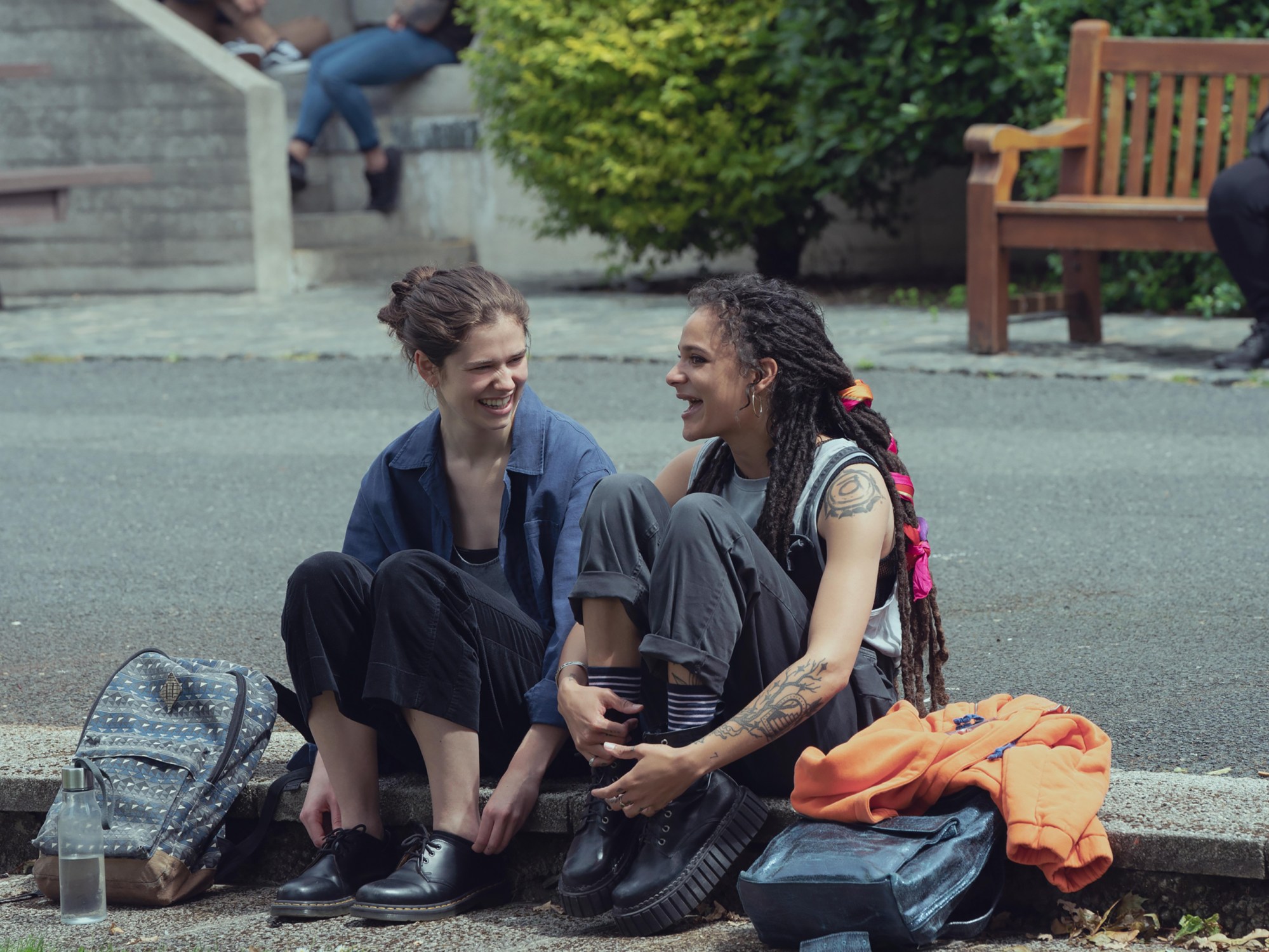
- Industry
“Conversations with Friends” – Salley Rooney’s Latest Celebrates and Normalizes Queer Love
“Frances is bisexual,” Bobbi (Sasha Lane) exclaims, unprompted while grilling Nick (Joe Alwyn), an actor, about his character’s sexuality in a play. “Don’t you feel a bit conflicted… you’re playing a gay character and you’re a straight man.”
“Is Brick gay? bisexual maybe,” Nick responds.
“You make it sound like gay is the destination and bisexual is like a stop on the way,” Bobbi barks back.
This awkward conversation takes place in the very first episode of Conversations with Friends — an adaptation of Sally Rooney’s 2017 debut novel, streaming on Hulu. Of course, Rooney’s first TV adaptation for her second novel, Normal People (the Golden Globe Nominee for Best Limited Television Series, Anthology or Motion Picture Made for Television), was a huge, star-making endeavor about Marianne (Daisy Edgar-Jones) and Connell (Paul Mescal), a complex, seemingly heterosexual couple.
Nick stays on his toes around Bobbi for the rest of the series, and totally enamored with his soon-to-be mistress Frances whose poetry, in an ironic twist of fate, is described as “sweet but ruthless” by Nick’s wife Melissa (Jemima Kirke).
In a refreshing storytelling feat, Nick and Melissa’s heterosexual relationship (marriage) isn’t prized or centered over the relationship between Frances and Bobbi, if anything the young couple use their romantic dynamics with the older, more traditional couple to better understand and center themselves.
The series astutely examines interconnectedness and interdependence as: “relationships don’t exist in a vacuum,” Meadhbh McHugh recently said in the New York Times. McHugh is an Irish playwright who adapted five episodes of the series. “It’s messy and entangled, and that can be painful for those involved,” McHugh added, “but it captures something real about any relationship.”
The series is undoubtedly centered on Frances’ growth. “It’s a first-person story and you see everybody from Frances’ point of view,” director Lenny Abrahamson said in a panel about the show during this year’s Dublin Film Festival. “Frances is enamored of Bobby. For those of who know the novel, she’s fascinated by her, and she idealizes her.” But the main conflict isn’t about Frances’ sexuality or her deciding if she wants to be with a man or a woman, an unfortunately typical bisexual trope, instead it’s about the deeper, familiar traumas that drive our need to be with, and be seen by, anyone. As Frances poignantly says in an exchange in which she’s defending Nick’s ordinariness to Bobbi: “who knows what happens between two people when they are alone.”
The show also showcases sensual and realistic romantic scenes between Frances and Bobbi in a striking and revelatory way that is rarely seen on television. “We wanted to maybe try and push a little bit further in the style that we settled on in Normal People,” Abrahamson explained. “So, Normal People, in a sense, [was] very naturalistic. It’s certainly very intimate in terms of how the camera works. We used a set of lenses, K35’s, which are very old and quite tricky and not always the most fun and reliable, but beautiful. But we wanted to see if we could push that further, because I think Conversations is less romantic than, in a sense of high romantic, but less romantic than Normal People. And we wanted to see, could we be even more bare and honest in some sequences. And so, we made the decision to shoot on film, which forced us into a way of work, which I really like.”